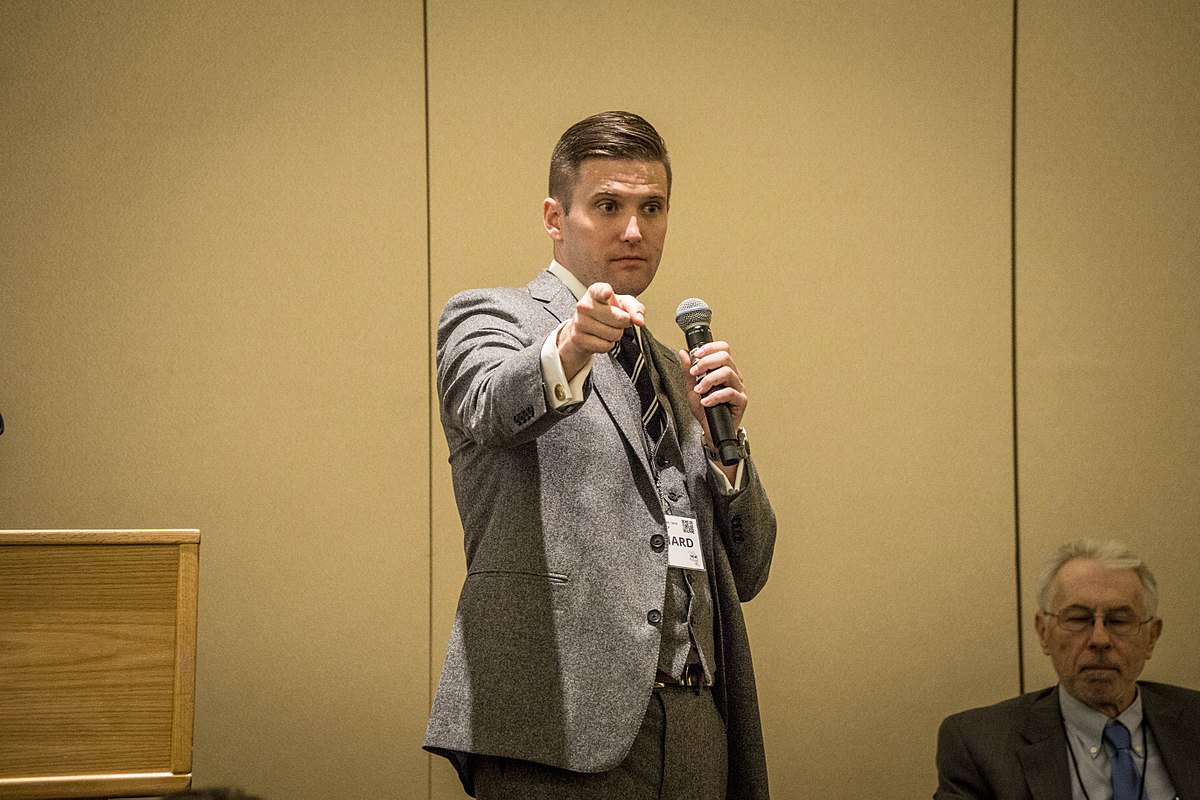A familiar scene characterized Richard Spencer’s recent visit to Michigan State University: violence erupted between anti-fascist activists and white supremacists at the MSU Pavilion for Agriculture and Livestock Education. Over 500 protesters mobilized to confront attendees as they arrived for the event. Protesters attempted to block Spencer’s supporters from entering the venue and physical violence broke out between the two groups, as activists reportedly threw “bottles, rocks, and horse manure” at the white nationalists. Twenty-five people were arrested, with thirteen arrested on felony charges, ranging from counts of carrying a concealed weapon, resisting and obstructing police, and assault and battery.
Although Spencer announced that he will suspend his public tour in response to the chaos at MSU, it is unlikely this suspension will last: shortly after the violence in Charlottesville, Spencer pursued more public speaking engagements. With speculation that Spencer will visit the University of Michigan next semester, it is worth considering how we can avoid a similar outbreak of violence. After all, Michigan State took significant measures to reduce the risk of conflict by hosting the event over spring break, providing a venue away from the center of campus, and ensuring a heavy police presence. What more can we do?
To prevent further violence, we must identify the root cause. The conflict on Monday was a battle between two identity-driven groups. Richard Spencer’s supporters, clad in black shirts and Nazi paraphernalia, organize themselves as a collective around their white identity. The protesters, who characterize themselves as the “antifascist” movement, develop group identity as a collective that is targeted by white supremacy. As the primary protest group, Stop Spencer at MSU, notes in their social media, they “oppose the fascists, the racists, and the university administration, the cops and ICE and the government who are complicit in these attacks and the enemies of our communities.”
The problem with these opposing identity groups is that their respective members retreat to the collective to draw upon support, and in the process, deprive themselves of responsibility as individual moral agents who are capable of good and evil. Instead, they view themselves as members of a righteous group, working against a force of malevolence. A battle is no longer fought in the conscience of each individual, but rather in the physical space between the opposing groups.
When one fails to view others as flawed humans capable of moral decisions, but as perpetrators of an ideology that must be fought, violence is readily excused. Flinging rocks and manure or shooting at groups of people makes sense in the framework of this worldview. Collective assessments like this have justified violence between people for much of human history. As social psychologist and author, Jonathan Haidt, wisely noted, “Righteous minds can easily justify violence in response to hateful speech. This is a big step on the road to hell.”
It could be argued that anti-fascist protesters do not need to spend time thinking about their position: the white supremacist views espoused by Spencer and his ilk are clearly evil, and action must be taken against them. As one protest organizer fairly argues, “Talking about genocide or that some people are intrinsically more intelligent because of their race are not rational ideas to be debated.”
While Spencer’s views are repulsive to all of our moral intuitions, white nationalist ideas cannot be erased by physically harming people that hold them, or suppressing the speech of those that espouse them, lest the protesters want to manifest the fascist tendencies they supposedly abhor. If students at the University want to “Stop Spencer,” then his ugly ideas must be contended within the conscience of each individual, where his views can be articulated and burned away with truth and moral intuition. Only by publicly expressing this process and appealing to others to reject hatred, can fascist thought be eliminated.
